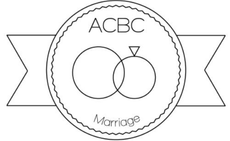By Brian Baker
•
02 Sep, 2022
When you get to the point of asking this question with sincerity because the pain and difficulty of this world has sapped the joy out of your life, then you can begin to discover what true, biblical joy is. Not the superficial, Pollyanna, life-is-great “so get over it” kind. Neither is it “putting lipstick on a pig.” God is fully aware of what you feel and He means what He inspired James to write. You can (must) “Consider it all joy when you encounter various trials.” (James 1:2) I went to James when my joy was gone because I knew he was straightforward and practical, and I needed help quickly. I read those familiar words afresh, “Consider it all joy.” It stopped me in my tracks. I thought, “Really, James? I have zero joy in this. How could I?” It wasn’t skepticism. By God’s grace I had the wherewithal to recognize God’s word is true and the problem lies not with Scripture, but with me. So, my next question was, “Okay…How?” God Knows Suffering Before jumping ahead to the answers, we should pause and take stock of what is transpiring inside of us. The question comes from desperation; maybe we’re on the verge of giving up on the faith because our experience doesn’t match up. I don’t mean it doesn’t match unwarranted expectations (though that’s true). I mean it wasn’t matching Scripture. On the one hand Jesus said, “These things I have spoken to you, that my joy may be in you, and that your joy may be full.” (John 15:11). After all, the fruit of the Spirit is “love, joy, peace, patience” etc. (Galatians 5:22-23). Yet, on the other hand, I was just so very sad, even bitter, all the time. Our sadness is most often related to very specific events and situations: your precious child to whom you gave the best years of your life and love is now estranged; your spouse doesn’t love you; your beloved parent or friend has died; you have cancer; your dear church has split. Fill in the blank. Whatever it is, James includes it. The application is all-encompassing, “…when you encounter various trials”—major ones, minor ones, intense, or mild. They can come and go without warning like a tornado, completely upending your life forever. They may be your constant, lingering, unwelcomed guest. Perhaps, it is all the above. When I say that God knows what you are feeling, that is true. God is the one who wrote, “A foolish son is a grief to his father, And bitterness to her who gave birth to him.” (Proverbs 17:25). That isn’t merely a truism. A parent’s grief and bitterness are in the heaving sobs that salt their prayers—too deep for words, lasting days, months, and years. We hear this in David’s lament, “Then the king trembled and went up to the chamber over the gate and wept. And this is what he said as he walked: ‘My son Absalom, my son, my son Absalom! If only I had died instead of you, Absalom, my son, my son!’” Jesus, the God-man, wept when his friend Lazarus died. In the Garden of Gethsemane, anticipating the wrath of His Father, we’re told, “in agony he prayed more earnestly; and his sweat became like great drops of blood falling down to the ground (Luke 22:44). The next day every one of his friends abandoned Him. Yet He, “who for the joy set before Him endured the cross.” God knows grief and He answers our question: “Yes. Really. Consider it all joy.” Okay, Lord. But how? How We Change Toward Joy James’s beginning with the imperative (the command) “consider it” gives us a major clue about the “how.” It has so much to do with our thoughts. Just as Paul explains, transformation (real heart-level change) into the likeness of Christ involves renewing the mind (Romans 12:2). Therefore, change from sadness and bitterness to joy in trials begins with our thinking. Take note of the several ways James guides us on how to think, how to interpret trials in Chapter 1. The explicit words he uses are: consider, knowing, do not be deceived, if anyone thinks himself, etc. These are intertwined with examples of what to think and what not to think. James 1:2-4 is a succinct progression of thought culminating in the final answer. “Consider it joy when you encounter various trials, knowing.” Knowing what? “that the testing of your faith produces endurance.” Before mulling over the connection with “endurance” notice that James sort of equivocates here. With a literary slight-of-hand he changes terms, thus shaping our thought. He redefines the issue. He doesn’t explain. He simply switches “trials” to “testing of your faith.” The trial(s) is a testing of our faith. God, Is Orchestrating Your Trial A “testing” indicates purpose and intent of the one who is testing. Of course, we know that James means God is behind it. And we know that God has a spiritual purpose because it is a testing of our faith. Time and space prevent me from continuing the exposition, but there is ample truth here to begin the road to joy. Know this: God has orchestrated these various trials. God is not only in it, but He is causing it. We can rejoice in that much alone if we have a right understanding of God. We must think properly about the character of God. Three key attributes come to mind: • God is all-knowing • God is all-powerful • God is good God is omniscient. Let that sink in—He knows every, single thing. He knows every possibility of every event with its effect upon every other possible action. This is mind-boggling. Not only does he know every circumstance and its effects, but he knows you, personally and thoroughly. He knows your motive, your thoughts, and your actions. “Even before there is a word on my tongue, Behold, Lord, You know it all.” (Psalm 139:4) Secondly, God is omnipotent. He is able to take all knowledge and act upon it. His power is limitless. It is one thing to know something; it is another to be able to do something about it. As Isaiah put it, “Declaring the end from the beginning, And from ancient times things which have not been done, Saying, ‘My plan will be established, And I will accomplish all My good pleasure.’” (Isaiah 46:10) Lastly, we can be thankful that this all-knowing, all-powerful God is a good God. He is holy. He is kind, merciful, and compassionate. Paul reminds us “And we know that God causes all things to work together for good to those who love God, to those who are called according to His purpose.” (Romans 8:28). As the old hymn goes, “What’er my God ordains is right.” But Why? James doesn’t end there. His progression goes from experience to purpose—from trial, to testing, to endurance, to perfection, or maturity. God is sanctifying us with trials while accomplishing His purposes on the earth. These things are all for our good and His glory. Therefore, if we value what God values, then we can consider it all joy when we encounter various trials.








